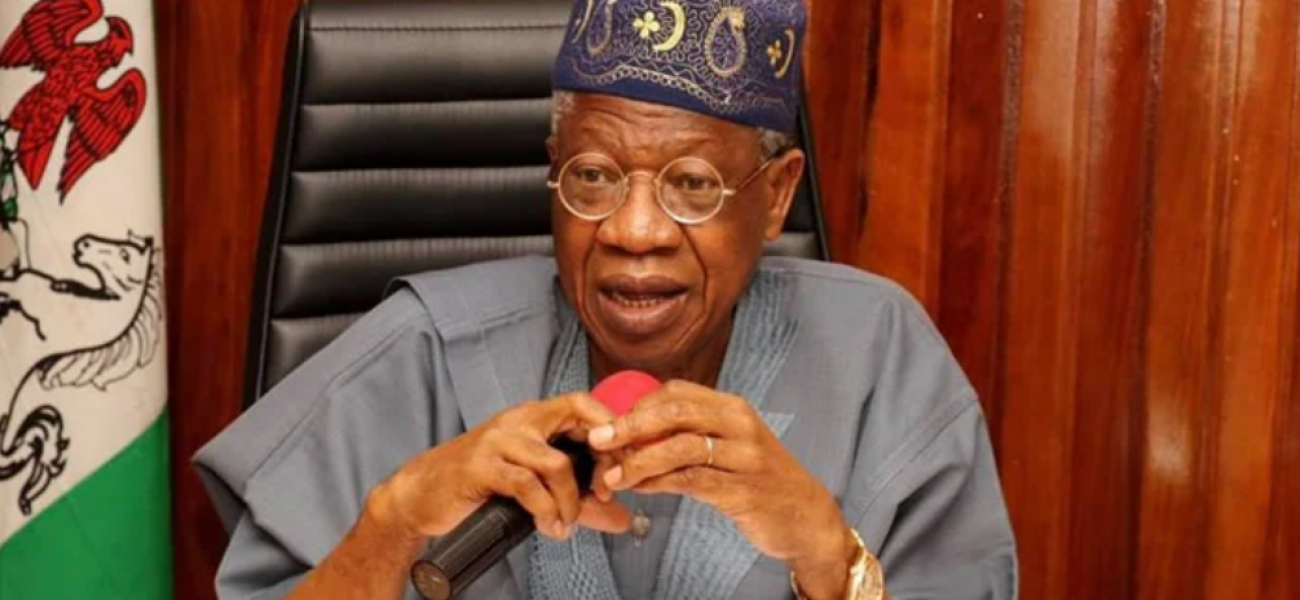Nigeria’s Information and Culture Minister, Lai Mohammed appeared before the House of Representatives Committee on Information and Communication Technology on Tuesday, June 22 for an investigative hearing, following the Federal Government’s Twitter ban. Following the ban, the House had summoned the Minister. At the hearing, the Minister who insisted that the ban of Twitter’s operations in Nigeria was legal, justified his position, relying on several legislative provisions. According to him, the freedom of expression provided in section 39 of the Nigeria Constitution is not absolute in light of the provision of section 45(1) of the Constitution, which permits restrictions to civil liberties in a democratic society: “(a) In the interest of defence, public safety, public order, public morality or public health or; (b) The purpose of protecting the rights and freedom of other person.”
Furthermore, the Minister cited section 3 of the National Security Act, which empowers the State Security Services (SSS) to preserve internal security, adding that the Twitter ban was made pursuant to the security reports of the SSS. The Information Minister also referred to section 5(1) and (2) of the Terrorism Act, 2011, which criminalise any form of support for terrorism, including through “the internet or any electronic means or through the use of printed materials or through the dissemination of terrorist information.” He stated that these provisions buttress the qualification of fundamental rights (including the freedom of expression) provided in section 45 of the Nigerian Constitution. The reference to sections of the Terrorism Act begs the question of who was supporting or inciting acts of terrorism, how they were doing so using the Twitter platform and how that led to the ban in the circumstance.
Mohammed went ahead to underscore the security and welfare of the people as the primary purpose of government, as contained in section 14(2)(b) of the Constitution. This brings to mind, the plethora of insecurity issues plaguing Nigeria and highlights the disparity in the government’s efforts to effectively address the daily activities of kidnappers, criminal herdsmen, bandits, on one hand, and efforts to regulate the media on the basis of security, on the other hand.
The Minister went on to state that Twitter is not licensed to do business in Nigeria, according to section 78 of the Companies and Allied Matters Act (CAMA), 2020, which mandates a foreign company to be incorporated in Nigeria in order to carry on business in the country. Interestingly, Nigeria’s Vice President, Professor Yemi Osibanjo, speaking at a meeting with the Chartered Institute of Taxation of Nigeria on Sunday, June 27, stated that legal provisions will be used to tax the profits of global technology and digital firms that are not based in Nigeria but have significant economic presence in the country. He made reference to section 4 of the Finance Act 2019, which amends the Companies Income Tax Act (CITA), as empowering the Minister of Finance, by an order of the President, to determine what constitutes significant economic presence of a company other than a Nigerian company. Going by this provision, if a foreign company with significant economic presence in Nigeria can be taxed to the extent of its operations without being registered as a Nigerian company, then there appears to be no reason for such a company to seek to be registered in Nigeria for the purpose of carrying on its business
Another basis of the Federal Government’s argument for the Twitter ban, are the provisions of sections 1,2,3 and 4 of the Cybercrimes Act, 2015; Articles 24,25 and 26 of the African Union on Cyber Security and Personal Data Protection, as well as Article 19(2) and (3) of the International Covenant on Civil and Political Rights (ICCPR). It highlighted its powers to regulate and promote the security of the Nigerian cyberspace and protect the country’s infrastructure from cyber threats or attacks.
It will be recalled that at the time of the ban, the apparent reason for the Federal Government’s action was that the microblogging platform had deleted President Muhammadu Buhari’s tweet, which made reference to the Nigerian civil war and in which the President stated that agitators in the South East will be dealt with “in a language they understand.” Subsequent efforts by the Federal Government to justify the ban are now hinged on several issues that were not initially referred to at the time of the ban. It will be recalled that weeks after the ban, the Minister accused the founder of Twitter, Jack Dorsey of being responsible for the aftermath of the #EndSARS protest, since he had shown support for it and given visibility to it on the Twitter platform. Mohammed insists he had earlier raised this point. One would wonder how a peaceful protest against police brutality and calls for police reform, amounts to an act of terrorism. The Minister in his submission to the House, also stated that the Federal Government’s decision to ban Twitter is well founded in law, in light of the fact that the platform is used by the proscribed Indigenous People of Biafra (IPOB) to champion its activities. Observers wonder, what steps if any, the government has taken to address the use of Twitter or any other media platform by IPOB or any other group perceived to constitute a threat to the nation. The Nigerian government has repeatedly relied on the so-called security reasons in previous attempts to regulate social media. However, at the time of placing a ban on Twitter’s operations, the government did not disclose national security threat as reason for its decision.

